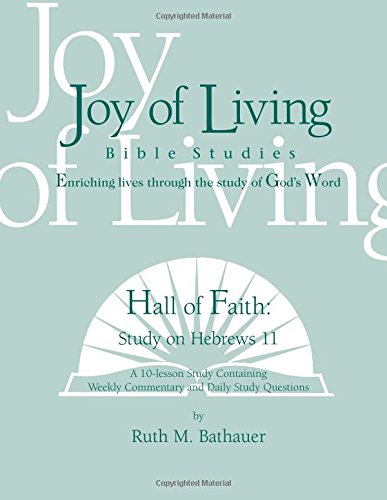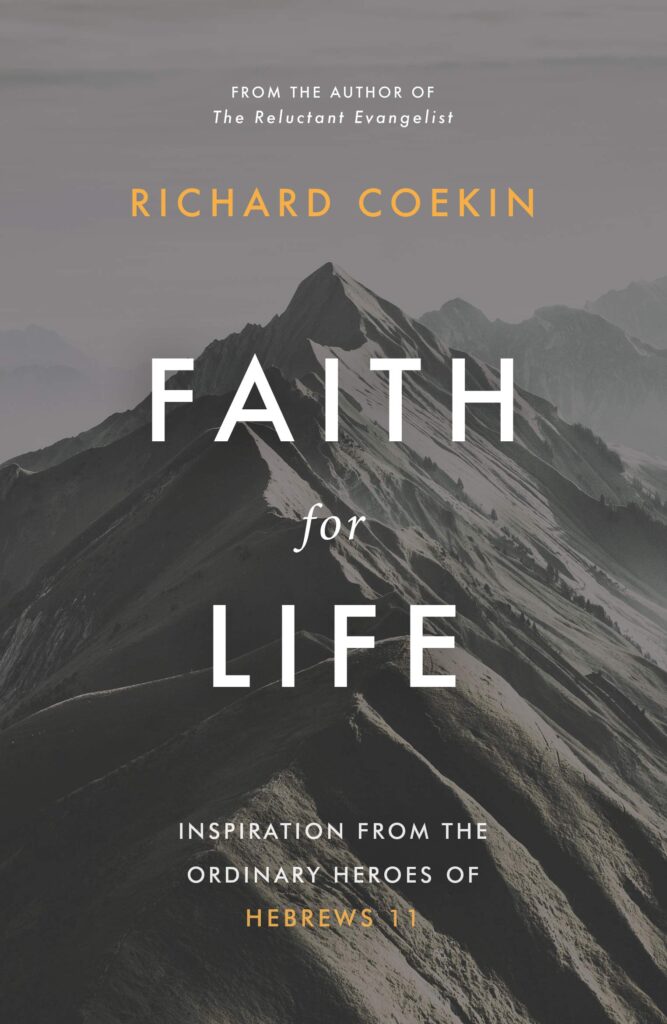Click here to return to Blog Post Intro
Unlikely Heroes: Ordinary People with Extraordinary Faith by Daniel Lockwood

Jacob: The Unlikely Success Story
Have you ever noticed how the most amazing accomplishments often come from the least likely people?
Let’s consider Jacob’s resume:
- He is not the firstborn of patriarch Isaac, and the firstborn generally holds the cultural pride of place in the ancient world. Jacob knows he began life with a severe social handicap.
- Jacob possess character traits that should disqualify anyone from shouldering the covenantal mantle of Abraham. Although Abraham cut corners and told half-truths, we never questioned his faith in God. Jacob, on the other hand, comes across as a crook from the very beginning—grabbing his brother’s heel at birth, bartering for Esau’s birthright, abetting his mother in stealing Esau’s elder-son blessing, and tricking his way through his relationships with Uncle Laban, leading to two wives and two concubines, and twelve sons.
- When Jacob meets God face-to-face, it is not a “remove your sandals—you’re standing on holy ground” moment; instead, it’s a wrestling match. We don’t see awe, fear, respect, or humility in the man. He’s trying to grab all he can get from almighty God. His name becomes “Israel”—the one who strives with God—as he heads the holy nation that God declares to be his chosen people.
- Even as a father, Jacob shows blatant favoritism to the sons of Rachel, and his other sons are out of control. Reuben, Simeon, Levi, and Judah are all mentioned specifically for their outrageous acts. Conspiring to sell Joseph into slavery in Egypt, they lie to their father about him being alive and live that lie for decades.
Let’s face it. Jacob is a real rascal. Yet, the writer of Hebrews includes him in the list of the heroes of faith. So, let’s examine Jacob’s life through three perspectives: Jacob’s struggles & flaws; Jacob’s growing faith; and Jacob’s final blessing.
Jacob’s Four Struggles
1. Jacob’s Struggle with Esau
Jacob’s struggle with Esau began in the womb (Genesis 25:19-28). Because he emerges grasping his brother’s heel, the younger twin is named Jacob, or “Supplanter.” No name is more appropriate, as Jacob is always trying to get more, to get the edge, to gain an advantage.
Then, Jacob trades a bowl of lentil stew (literally “red stuff”) to Esau (whose name means “Red”) for Esau’s birthright—the promise of a double portion of the father’s land and goods, usually given to the eldest son. It has broad spiritual implication too, designating the heir as the spiritual leader of the clan. Scripture tells us that Esau “despised his birthright” (Genesis 25:34), so he carelessly rejected his spiritual responsibilities.
The greatest struggle between the twins involved Isaac’s patriarchal blessing in Genesis 27. Their mother, Rebekah, worked with Jacob to trick Isaac and ensure that her youngest son received the coveted blessing. Jacob fears Esau’s vengeance (Genesis 32-33), and his troubles shine a spiritual spotlight on our unlikely hero of faith, who deceives himself into thinking he can manage life for himself.
2. Jacob’s Struggle with Laban
Jacob fled far away to Haran, where Rebekah’s brother Laban and his family lived (Genesis 28). Jacob met Laban’s beautiful daughter Rachel at the well (Genesis 29). Jacob offers to work for Laban 7 years in return for Rachel’s hand in marriage. At the completion of 7 years, Laban tricks him into marrying his older daughter, Leah, instead. Ironically, Jacob calls Laban a “supplanter”! Laban forced Jacob to work another 7 years to marry Rachel.
Jacob realizes from Laban, perhaps for the first time, how hurtful lies and trickery can be.
3. Jacob’s Struggle with His Family
Jacob loves Rachel dearly but despises Leah (Genesis 29). As the rivalry between the sisters expands, they bring their handmaidens into the marriage bed (Genesis 30).
God shows Leah mercy by giving her sons—a strong confirmation that God intervenes for the downtrodden. She names her sons “the Lord sees” (Reuben), “the Lord hears” (Simeon), and “the Lord be praised” (Judah) in gratitude.
4. Jacob’s Struggle with God
Jacob’s struggles demonstrate that God uses the adversities stemming from our own twisted temperaments and arrogant egos to turn our self-centered eyes to him.
That is why Jacob’s fourth struggle is the most momentous: he has a personal wrestling match with the living God (Genesis 32:22-32)! This struggle transforms Jacob’s heart, mind, and soul.
Jacob shows us that God refines people of faith through adverse circumstance.
Jacob’s Growing Faith
When fleeing from Esau to Haran, Jacob spends the night in the desert near Luz and receives a night vision of God standing atop a stairway that reaches to heaven (Genesis 28:10-22). Angels are ascending and descending from Jacob’s campsite. God tells him he is the heir to the divine covenant made to Abraham and Isaac. The next day, Jacob renamed the place Bethel, “the house of God.”
Twenty years later, Jacob flees Haran and builds an altar at Gilead (Genesis 31). Here, Jacob and Laban make a formal covenant to stay out of each other’s way, erecting a stone pillar that Jacob names “the heap of witness.”
Jacob’s anticipated reunion with Esau precipitates his most significant encounter with God, at Penuel (Genesis 32:22-32). In vintage Jacob fashion, he doesn’t just meet God face-to-face; instead, he wrestles with Him!
This is Jacob’s spiritual crossroads, his burning bush. Jacob—the wrestler, the struggler, the deceiver—meets God, who transforms him. With no explanation, they wrestle for hours with neither gaining the upper hand. As dawn approaches, the unknown contestant, seeking to end the match, simply touches Jacob’s hip, apparently dislocating it. Jacob, no longer able to wrestle, clings to the man, uttering, “I won’t let you go until you bless me.”
His opponent responds, “You are no longer Jacob the Supplanter, Jacob the Trickster, Jacob the Heel-Grabber. From now on, you are Israel ‘the One Who Strives with God.’ I will give you a blessing more than you could ever imagine and certainly more than you deserve.” Then, Jacob receives a blessing that makes the one he stole from Esau pale by comparison.
Living by faith requires divine confrontation to produce spiritual transformation.
Jacob’s Final Blessing
Jacob, frail and near death, offered blessing to Joseph’s two sons (Hebrews 11:21). Jacob intentionally gives the younger the greater blessing, despite Joseph’s protests.
Jacob shows us that living by faith weds unmerited blessing with undeserved hope. The life of faith isn’t based on merit. It is based on God’s grace alone—sola gratia. None of us earn life with God as a reward. It is a gift of God. In His love, He transforms us, and from His compassion, He blesses us.
Joy of Living Bible Studies – Hall of Faith: Study on Hebrews 11 by Ruth M. Bathauer

As Jacob fled to Haran—avoiding the wrath of his brother Esau—he had a dream in which he saw a stairway extending from earth to heaven with angels ascending and descending on it. The Lord was at the top, and He repeated His promise to Abraham: “Your descendants will be like the dust of the earth… All peoples on earth will be blessed through you and your offspring. I am with you and will watch over you wherever you go, and I will bring you back to this land. I will not leave you until I have done what I have promised you” (Genesis 28:14-15).
Jacob experienced difficulties, mingled with joys and blessings while he was in Haran working for his uncle, served to strengthen Jacob’s spiritual fiber. He was blessed with a large family and became a wealthy owner of flocks of sheep and herds of cattle. Unformately, he did not overcome all of his sly habits and he attempted to gain wealth through several schemes. God never gave up on Jacob despite his cheating and failures.
God commanded Jacob to return to his home in Beersheeba (Genesis 31:3).
9 Then Jacob prayed, “O God of my father Abraham, God of my father Isaac, Lord, you who said to me, ‘Go back to your country and your relatives, and I will make you prosper,’ 10 I am unworthy of all the kindness and faithfulness you have shown your servant. I had only my staff when I crossed this Jordan, but now I have become two camps. 11 Save me, I pray, from the hand of my brother Esau, for I am afraid he will come and attack me, and also the mothers with their children. 12 But you have said, ‘I will surely make you prosper and will make your descendants like the sand of the sea, which cannot be counted.’”
Although he was fearful, Jacob seemed to believe that:

Jacob fathered twelve sons—one of which was Joseph. When Joseph learned that his father was dying, he brought his own two sons, Manasseh and Ephraim, to be blessed by Jacob. Then, Hebrews 11:21 says, “By faith Jacob, when he was dying, blessed each of Joseph’s sons, and worshiped as he leaned on the top of his staff.” After that blessing, Jacob called his twelve sons to him and blessed each one (Genesis 49).
Heroes of Faith by Douglas Connelly

It’s never easy to see a person we love come to the end of life. At times, the person knows death is coming and has the opportunity to express their love and comfort to those left behind. Those “final words” have the potential to inspire and guide an entire generation.
The legacy of faith that started with Abraham powerfully guided and influenced the generations after him—starting with his own son Isaac then flowing down to Isaac’s son Jacob. Jacob was the most deceitful and scheming of Abraham’s descendants and yet, at the end of his life, he demonstrated remarkable trust in God’s ability to keep his promises.
Jacob revealed several experiences from his past that moved him from a manipulative schemer to a person who confidently trusts in God:
- God appeared to Jacob and repeated the promises that He gave to Abraham and Isaac (Genesis 28:0-21).
- God gave Jacob an abundance of sons—which was already a partial fulfillment of God’s promises to him.
- Rachel’s burial in Canaan was a link to the land that God had promised (Genesis 35:16-20).
- God exalted Joseph in Egypt and reunited Jacob with Joseph.
As Jacob drew near to death, he demonstrates the faith of his ancestors by passing on the blessing of God’s promises to his sons and grandsons, particularly the two sons of his son Joseph. By claiming Joseph’s two sons as his own, Jacob raised Ephraim and Manasseh to the same status in Israel as his natural sons—giving Joseph a double portion of his blessing and inheritance.
Faith for Life: Inspiration from the Ordinary Heroes of Hebrews 11 by Richard Coekin

By faith Jacob, when he was dying, blessed each of Joseph’s sons, and worshipped as he leaned on the top of his staff. – Hebrews 11:21
The reference to Jacob worshipping as he leaned on his staff is to emphasize that, at the end of his life, Jacob was trusting the Lord to bring him through death into his presence.
Jacob goes further than his father, Isaac. He prays for his grandsons: “May the God before whom my fathers Abraham and Isaac walked faithfully, the God who has been my shepherd all my life to this day, the Angel who has delivered me from all harm—may he bless these boys” (Genesis 48:15-16).
When he prays for the tribe of Judah, he prays in accordance with God’s gospel promise: “The sceptre will not depart from Judah until he to whom it belongs shall come [Jesus] and the obedience of the nations shall be his” (Genesis 49:10). He is expressing his hope in the coming of God’s Messiah, Jesus—who would come from the family line of Judah—in accordance with the promise made to his grandfather, Abraham.
God’s Hall of Faith Speaks Today (Hebrews 11) by J. David Eshleman

Genesis 32:24-30
So Jacob was left alone, and a man wrestled with him till daybreak. When the man saw that he could not overpower him, he touched the socket of Jacob’s hip so that his hip was wrenched as he wrestled with the man. Then the man said, “Let me go, for it is daybreak.”
But Jacob replied, “I will not let you go unless you bless me.”
The man asked him, “What is your name?”
“Jacob,” he answered.
Then the man said, “Your name will no longer be Jacob, but Israel, because you have struggled with God and with humans and have overcome.”
Jacob said, “Please tell me your name.”
But he replied, “Why do you ask my name?” Then he blessed him there.
So Jacob called the place Peniel, saying, “It is because I saw God face to face, and yet my life was spared.”
Wrestling with God in prayer results in repentance. Without repentance, you cannot receive God’s forgiveness and grace. Reconciliation will cost us our self-centered ego, but the peace that follows is far greater than living with inner turmoil.
When you are at odds with anyone, do what Jacob did: wrestle with God in prayer. Then do what God tells you to do. As Jesus said, “Blessed are the peacemakers for they will be called sons of God” (Matthew 5:9).
In his book Destined for the Throne, Paul Billheimer wrote, “Prayer is not primarily God’s way of getting things done. It is God’s way of giving the Church ‘on-th-job’ training in overcoming forces hostile to God. The world is a laboratory in which those destined for the throne are learning, by actual practice in the prayer closet, how to overcome Satan and his hierarchy. God designed the program of prayer as an ‘apprenticeship’ for eternal sovereignty with Christ.”
Veteran Missionary Don Jacobs wrote, “We Christians discover that our most powerful weapon against Satan is fervent prayer. When I asked some Ethiopians why their church grew so much during their 10years of severe persecution (1982-1992), they all responded, ‘We learned to pray out of our desperation.’ We might think that persecution produces growth. That might be, but the heart of the matter is that persecution drives saints to give themselves to imploring prayer, because they can simply do nothing about the situation.”
The late Bill Bright said, “It is my strong conviction that it is impossible to ask God for too much if our hearts and motives are pure, and if we pray according to the Word and will of God…”
May all Out of This World Leaders learn to pray more fervently, as we shoot for the stars!
